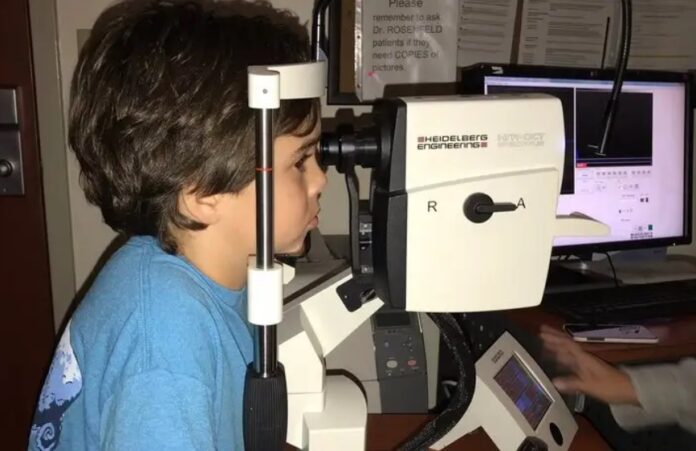Good vision is essential for children’s normal development and learning. Infants and toddlers who do not see clearly or have distorted vision — such as double vision — have extra learning challenges.
At about six weeks, an infant should be able to follow an interesting, colorful object with its eyes. If your baby doesn’t do this or doesn’t respond to your facial expressions, then ask your pediatrician to check baby’s vision.
In early childhood, watch for watery eyes, eye rubbing, holding objects very close to the face or one eye turning inward or outward — you might notice this more when the child is tired.
There are other explanations for some of these behaviors — allergies can cause itchy, watery eyes, for example. But mentioning your observations to your child’s doctor right away is best.
If problems are not picked up at an early age, your child might have permanently reduced vision in one or both eyes. Children do not have to be able to read or talk to have their eyes examined.
School-aged children should have regular vision screenings at their annual check-up with their doctor. See the American Academy of Ophthalmology website to learn the difference between a screening and an exam.
For more information, contact Dallas County Health Navigation at 515-993-3659 or phn@dallascountyiowa.gov.
Ann Cochran is the health navigation coordinator in the Dallas County Public Health Department.
















